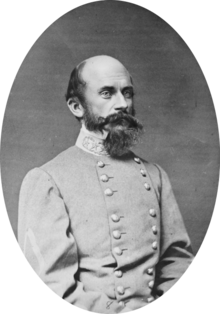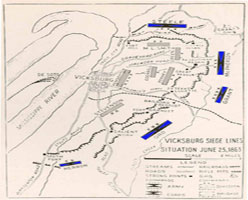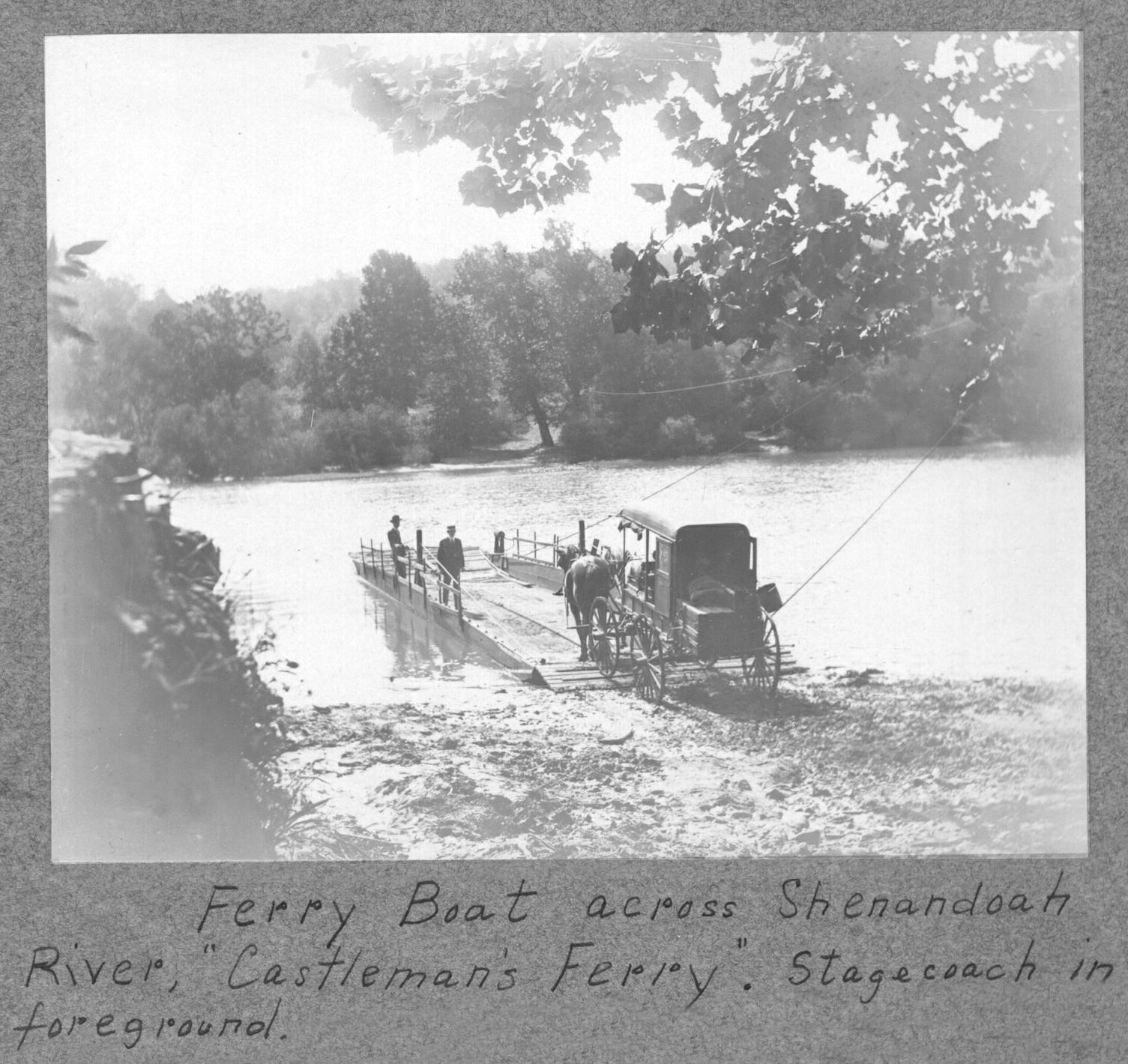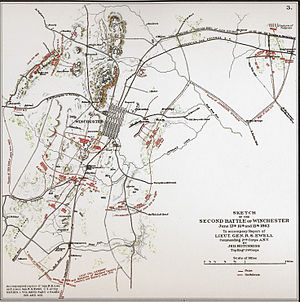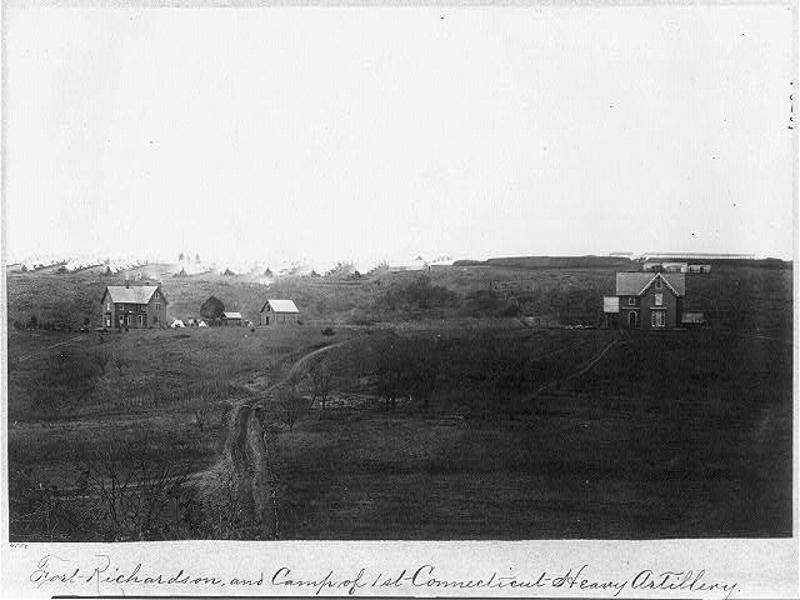 |
| Barlow's Knoll After First Day's Battle |
HARRISBURG, PA., July 1, 1863-12. 45 a. m. (Received 1. 35 a. m.)
Major General H. W. HALLECK,
General-in-Chief:
Information just received, 12. 45 a. m., leads to the belief that the concentration of the forces of the enemy will be at Gettysburg rather than at Chambersburg. The movement on their part is very rapid and hurried. They returned from Carlisle in the direction of Gettysburg by way of the Petersburg pike. Firing about Petersburg and Dillsburg this p. m. continued some hours. Meade should by all means be informed, and be prepared for a sudden attack from Lee's whole army.
H. HAUPT,
Brigadier-General.
(Sent to General Meade be courier from Frederick, at 2 p. m. ; copy to General Schenck.)
HEADQUARTERS ARMY OF THE POTOMAC,
Nine Miles east of Middleburg, July 1, 1863-7 a. m.
(Received 4 p. m.)
Major General H. W. HALLECK,
General-in-Chief:
Dispatches of General Couch and General Haupt received. My positions to-day are, one corps at Emmitsburg, two at Gettysburg, one at Taneytown, one at Two Taverns, one at Manchester, one at Hanover. These movements were ordered yesterday, before the receipt of advices of Lee's movements. Our cavalry, under Kilpatrick, had a handsome fight yesterday at Hanover. He reports the capture of 1 battle-flag, a lieutenant-colonel, 1 captain, with 15 or 20 of the enemy killed. The point of Lee's concentration and the nature of the country, when ascertained, will determine whether I attack him or not. Shall advise you further to-day, when satisfied that the enemy are fully withdrawn from the Susquehanna. If General Couch has any reliable force. I shall call upon him to move it to aid me.
GEO. G. MEADE,
Major-General, Commanding.
WASHINGTON, D. C., July 1, 1863-10. 45 a. m.
Major-General MEADE,
Army of the Potomac:
The movements of the enemy yesterday indicate his intention to either turn your left, or to come himself by the South Mountain and occupy Cumberland Valley. Do not let him draw you too far to the east.
H. W. HALLECK,
General-in-Chief.
TANEYTOWN, July 1, 1863-12 m.
General HALLECK:
Dispatch sent last night giving my position at Emmitsburg, Gettysburg, and Hanover. Ewell is massing at Heidlersburg. A. P. Hill is massed behind the mountains at Cashtown. Longstreet somewhere between Chambersburg and the mountains. The news proves my advance has answered its purpose. I shall not advance any, but prepare to receive an attack in case Lee makes one. A battle-field is being selected to the rear, on which the army can be rapidly concentrated, on Pike Creek, between Middleburg and Manchester, covering my depot at Westminster. If I am not attacked, and I can from reliable intelligence have reason to believe I can attack with reasonable degree of success, I will do so; but at present, having relieved the pressure on the Susquehanna, I am now looking to the protection of Washington, and fighting my army to the best advantage.
1 P. M.
The enemy are advancing in force on Gettysburg, and I expect the battle will begin to-day.
GEO. G. MEADE.
HEADQUARTERS ARMY OF THE POTOMAC, July 1, 1863.
[General SEDGWICK:]
DEAR SEDGWICK: I transmit herewith an order directing that General Newton assume the command of the First Corps. General Meade wishes him to proceed to the front with all possible dispatch. It is with great regret I inform you that General Reynolds was killed in the engagement of to-day in front of Gettysburg. We have as yet none of the particulars of his death. There is nothing very recent from the front. The enemy appear to be concentrating, and I suppose to-morrow a great battle will be fought. I remain, very truly, yours,
S. WILLIAMS.
HEADQUARTERS FIRST CAVALRY DIVISION,
July 1, 1863-3. 20 p. m.
I am satisfied that Longstreet and Hill have made a junction. A tremendous battle has been raging since 9. 30 a. m., with varying success. At the present moment the battle is raging on the road to Cashtown, and within short cannon-range of this town. The enemy's line is a semicircle on the height, from north to west. General Reynolds was killed early this morning. In my option, there seems to be no directing person.
JNO. BUFORD,
Brigadier-General of Volunteers.
General Pleasonton.
P. S. -We need help now.
HEADQUARTERS ARMY OF THE POTOMAC,
July 1, 1863-6 p. m.
(Received 10. 20 p. m., via Frederick City.)
Major General H. W. HALLECK,
General-in-Chief:
The First and Eleventh Corps have been engaged all day in front of Gettysburg. The Twelfth, Third, and Fifth have been moving up, and all, I hope, by this time on the field. This leaves only the Sixth, which will move up to-night. General Reynolds was killed this morning early in the action. I immediately sent up General
Hancock to assume command. A. P. Hill and Ewell are certainly concentrating; Longstreet's whereabouts I do not know. If he is not up to-morrow, I hope with the force I have concentrated to defeat Hill and Ewell. At any rate, I see no other course than to hazard a general battle. Circumstances during the night may alter this decision, of which I will try to advise you. I have telegraphed Couch that if he can threaten Ewell's rear from Harrisburg without endangering himself, to do so.
GEO. G. MEADE,
Major-General.
HEADQUARTERS, Taneytown, July 1, 1863-7. 30 p. m.
Major-General SEDGWICK:
GENERAL: The major-general commanding directs me to say that a general battle seems to be impending to-morrow at Gettysburg; that it is of the utmost importance that your command should be up. He directs that you stop all trains that impede your progress, or turn them out of the road. Your march will have to be a forced one to reach the scene of action, where we shall probably be largely outnumbered without your presence.
If any shorter road presents itself, without difficulty in getting up, you will use your discretion in taking it, and report the facts to these headquarters. General Sykes has been ordered up from Hanover to Gettysburg, and General Slocum from Littlestown; General Hancock's corps from here. The whole army are there (Gettysburg), or under way for that point. The general desires you to report here in person, without delay, the moment you receive this. He is waiting to see you here before going to the front. I am, very respectfully,
DANL. BUTTERFIELD,
Major-General, Chief of Staff.
[P. S.]-The trains will all go to Westminster and Union Bridge, as ordered.
WASHINGTON, D. C., July 1, 1863-9. 15 p. m.
Major-General MEADE,
Army of the Potomac:
Yours of 12 m. received. Your tactical arrangements for battle seem good, so far as I can judge from my knowledge of the character of the country; but in a strategic view are you not too far east, and may not Lee attempt to turn your left and cut you off from Frederick? Please give your full attention to this suggestion. Lowell's cavalry was sent this morning to escort the stores from Harper's Ferry. This will relieve General French to obey your orders. The destruction of unguarded property on the canal along the Potomac has been terrible. Will not Frederick become a better base of supplies than Westminster? In anticipation of this, I have directed General Schenck to guard that road as well as he can. I have ordered General Couch to co-operate with you as far as possible; but I fear very little reliance can be placed on his troops in an emergency.
H. W. HALLECK,
General-in-Chief.
GREENWOOD, July 1, 1863.
Brigadier General J. D. IMBODEN, Commanding, &c:
GENERAL: I have received your letter of 7 a. m. yesterday, from near Mercersburg. I regret the capture of Captain Irwin and part of his company at McConnellsburg, especially as it appears to have
been the result of want of proper caution on his part. I hope it will have the effect of teaching proper circumspection in future.
Upon arriving at Chambersburg to-day, I desire you to relieve General Pickett, who will then move forward to this place. You will, of course, establish guards on the roads leading to your position, and take every precaution for the safety of your command. Obtain all the flour that you can load in your wagons from the mills in your vicinity, and if you cannot get sufficient, I believe there are 700 or 800 barrels at Shippensburg, about 10 miles north of Chambersburg, on the Carlisle road. You must turn off every body belonging to the army on the road to Gettysburg. The reserve trains of the army are parked between Greenwood and Cashtown, on said road, and tomorrow I desire you to move up to this place, establish yourself so as to command the cross-roads and roads leading into town, throw out pickets on the roads to Shippensburg, New Guilford, Chambersburg, and Greencastle, and establish a separate picket at Greencastle, to turn off all persons seeking the army by the direct road from Greencastle to Greenwood. It will be necessary for to have your men well together and always on the alert, and to pay strict attention to the safety of the trains, which are for the present placed under your charge, and upon the safety of which the operations of this army depend.
You will at the same time have an opportunity of organizing your troops, refreshing them for a day or two, and getting everything prepared for active operations in the field, for which you will be speedily wanted.
Sent word to General Pickett at this place to-morrow, which is 8 miles from Chambersburg, the hour when you will arrive here, in order that he may be prepared to move on your arrival. My headquarters for the present will be at Cashtown, east of the mountains.
Very respectfully, your obedient servant,
R. E. LEE,
General.
Official Records, Series I., Vol. 1, Pages 70-72, Series I, Vol. 3 Pages 464, 467, 474, 924, 947, 948.
The facts of the first day at Gettysburg are so well known as to need no restatement. But it is instructive to read these messages in light not of how events transpired, but of what was known at the time.


